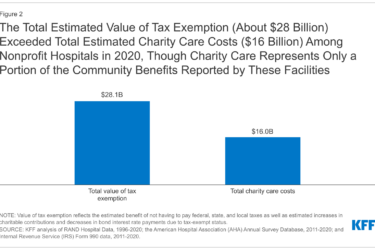I have a few quick thoughts on this week’s Supreme Court hearings and what it will mean for our coverage of Health Policy.
Most people in the courtroom (or people who, like me, listened to audio, read transcripts, wrote and edited a ton of copy and couldn’t avoid Jeff Toobin) ended up with the gut feeling that Health Policy is in deep trouble – that the court is likely to toss the individual mandate, some of the insurance provisions, and maybe a whole lot more. Maybe all of it.
 Joanne Kenen (@JoanneKenen) is AHCJ’s health reform topic leader. If you have questions or suggestions for future resources, please send them to joanne@healthjournalism.org.
Joanne Kenen (@JoanneKenen) is AHCJ’s health reform topic leader. If you have questions or suggestions for future resources, please send them to joanne@healthjournalism.org.But of course, we don’t really know what the court will do. Tough questions in public certainly let us know that all nine justices are not exactly the law’s biggest boosters. But what they will do, as they mull and debate behind closed doors, is not a sure thing. We can guess, but we don’t know. And we won’t know for about three months. (There’s a chance that it will be sooner – but traditionally big rulings come out at the end of the term. And this is a big, big ruling).
Remember the “Conventional Wisdom” was wrong before – wrong from the beginning. The CW didn’t think Obama was going to push for comprehensive Health Policy. The CW didn’t think he’d be able to enact Health Policy – particularly not after Scott Brown’s election. The conventional wisdom didn’t think there would be a fight about the mandate. Or that the mandate would end up in the Supreme Court. Or that it would be in deep, deep, deep trouble once it got there.
So what do we do for the next three months?
First of all, we are going to get spun – and the negativity about the oral arguments is going to help the anti-health law camp of spinners. (The “hey it’s hunky-dory, it’s all fine” advocacy world rings a little hollow at the moment – although they may turn out in June to be right.) Keep an eye out for that “the law is dead so let’s get real” drumbeat because if things are said often enough, in a media or political context, they can start becoming the new conventional wisdom and affecting how we report and write.
We might get pushed by editors to be more forceful about predicting the demise of the law (or the mandate) than we are comfortable with. Push back – you can certainly say there are real questions about the law’s survival. You can’t pick out hymns for its burial.

Watch your state. Are officials slowing down implementation? Not submitting grant applications for exchange planning when they were before, or not putting out bids for exchange IT teams, etc.? Are the implementers slowing down – and are the non-implementers freezing? How much catching up will they have to do if the statute is upheld – and they have to meet some exchange certification deadlines by Jan. 1, 2013.
Is the court situation affecting state politics – local, congressional, presidential. How?
Is anyone talking about state initiatives to fill in if the parts of the federal plan are punctured? For instance, if the federal mandate fails, there’s nothing to stop a state from passing its own mandate; the federal constitutional questions don’t apply. I suspect few states will do this – but I can think of a handful that might. (If this does start to bubble up in your state, please email me your coverage.)
What are the hospitals’ and insurers’ and physician groups’ contingency plans? Are delivery system reforms and innovations on hold – or is the assumption that they can either proceed without the federal law, or that the relevant sections of the law will survive
And does the public know what it wished for? It wanted Health Policy when it didn’t have it. Then it decided it didn’t like Health Policy when it got it. Do Americans really want to go back to March 22, 2010 (the day before President Obama signed it)? And do they realize they can’t; that the health system has changed? Do they understand that people who are getting benefits under the first phases of the law’s implementation could lose them? And that costs will rise, the numbers of uninsured (now somewhere around 50 million) will rise, and Congress – so polarized that it has trouble doing much more than renaming post offices these days – is not going to come swooping in with a pain-free bipartisan fix-the-problems-with-no-cost-or-dislocation make-everyone-happy solution.
Related
Responses to the Supreme Court’s Health Policy decision
Webinar: Implementing Health Policy in the states
Affordable Care Act before the Supreme Court: What you need to know – A tip sheet by longtime legal journalist T.R. Goldman that addresses five key questions.








